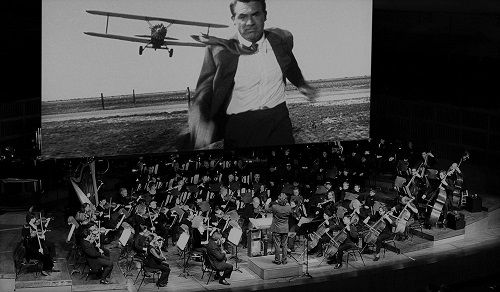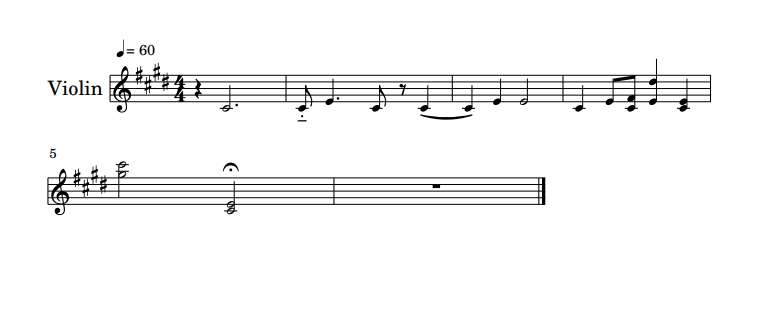Any movie fans out there? I've been thinking about the emotional impact that music can have on a film and its audience. I was particularly struck recently by the work of Hildur Guðnadóttir, who won an Oscar for Best Original Music for the soundtrack of Joker (2019). After seeing the film, I was immediately drawn to search for the album and listen to it carefully. What I found was a work full of emotional depth, especially in the track Bathroom Dance. This experience led me to wonder about which technical aspects make a song a catalyst for emotions and how we composers can write emotional music.
What is the role of music in film?
Have you ever been moved by a song the first time you hear it? I certainly have, and I that's because of the connection between musical patterns and emotional stimulation. Music often functions as an emotional bridge between us and the world, influencing and shaping our perceptions.
Coming back to the use of music in film, it's tool that helps us feel the emotions of a scene in a more profound way. For example, the music can make us feel the joy or sadness of a moment, or help us understand what a character is feeling without the need for explicit dialogue. Understanding how to create emotional music can thus be a powerful tool for filmmakers and musicians alike.

I feel that music on the screen can seek out and intensify the inner thoughts of the characters. It can invest a scene with terror, grandeur, gaiety, or misery. It can propel narrative swiftly forward, or slow it down. It often lifts mere dialogue into the realm of poetry. Finally, it is the communicating link between the screen and the audience, reaching out and enveloping all into one single experience - Bernard Herrmann*
Music can convey emotions and ideas that are often difficult to express with words alone. To see how, let's get back to the soundtrack of the critically acclaimed film, Joker. While the scores in the film may not be immensely complex, they are nonetheless incredibly effective at conveying the emotional depth of the story. The Bathroom Dance, for example, features a steady and ominous composition with strings that perfectly captures the dark and brooding atmosphere of the film.
Why is the Joker soundtrack so emotional?
What truly sets Guðnadóttir's creation apart, however, is its ability to take the audience on a journey into the Joker's mind. Through her music, we are able to form a strong emotional connection with the story, and truly experience the film in a way that would not be possible otherwise. In many ways, the music serves as the spirit of the film, perfectly suited to its dark and aggressive emotional palette. Overall, it is clear that Guðnadóttir's work on the Joker soundtrack represents an incredible achievement in the world of film music, and will continue to inspire and captivate audiences for years to come.

To understand the emotional impact of Bathroom Dance, we need to identify some essential aspects. First, the song is in a minor key – C#m. What does this tell us? Minor scales tend to make us feel quiet and sad; and more specifically, C#m induces despair. This scale is perfect if you want to express sorrow, deep grief, self-punishment, and similar emotions.
The second aspect to mention is the tempo. The tempo in this score is Lento, which evokes slowness and profound reflection.
💡Learn how to change the tempo in your scores in Flat with this tutorial.
Let's delve a little deeper. Analyzing the melody and harmony of a score can provide valuable information. Look at the introduction of Bathroom Dance below (I used Flat to write it out).

Note that there are no accidental alterations. The absence of accidental alterations is of paramount importance, as it serves to establish coherence and preserve the intended emotional impact of the song.
Imagine for a moment that the song did have accidental alterations. Those would create tension and discomfort, and in more drastic cases, like changing from C#m to G in a section of the piece, could completely alter the meaning of the scene and the emotional effect of the song. However, Bathroom Dance is meant to convey a moment of deep self-consciousness and sorrow for the Joker. To accurately reflect this, coherence and constancy in the music are essential.
So,
Which musical aspects evoke strong emotions?
Answering the question of what makes a song emotionally powerful can be a daunting task. It is not always clear-cut, and many factors come into play. However, understanding certain music theory concepts can improve our ability to communicate through music, allowing us to better convey the emotions we want to express.
With that in mind, we want to delve deeper into this topic and offer you a comprehensive guide to understanding the connection between music and emotion. We created a series of articles that cover the following topics:
- The basics of music theory and how they relate to emotions
- How melody and harmony can influence emotions
- The role of rhythm in conveying emotional messages
- How timbre and instrumentation can evoke specific emotions
- Using music to tell a story and create an emotional journey
We hope that our insights will help you grow in your creative journey and enable you to create music that truly moves your audience.
In this article, we will discuss how to identify and choose the right key for a song in order to convey the desired emotional effect.
We will explain how the tempo affects our emotional response to a piece of music and provide guidance on choosing the most suitable tempo for your compositions.
In these articles, we will provide basic tools for analyzing harmony and melody. This is analogous to learning how to choose the words we use in a conversation.
4. Progression: How to Tell the Story
Setting a progression is like plowing a field. Have you ever wondered why certain progressions are so common in music? We will talk about why.
5. Modulation
Last but not least, we will discuss how to change the emotional effect of your music through modulation.
Sincerely,
*Bernard Hermann was a film composer particularly known for his collaborations with director Alfred Hitchcock.
